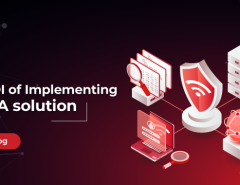In 2018, the line between physical and digital world is increasingly blurring. Today, no business can solely operate in just the physical sphere. The emergence of connected technologies means every company, big or small, has some digital functions. No doubt, the advent of a digital world has led to greater connectivity and faster decision-making. But it also puts businesses at the risk of the many threats that the cyber world possesses.
Hence, it becomes imperative that businesses fortify themselves against these cyber threats. Building a strong defence goes a long way but businesses cannot overlook another important factor: regular back-ups.
Often, network administrators do not invest in back-ups as much as they should, in the often misplaced belief that they are not at risk. Nothing could be further from the truth. Data loss can have severe financial consequences: in 2014, a report from EMC Corporation found that data loss and downtime cost Indian business a whopping $54 billion annually. If those numbers sound massive, consider the fact that the report is four years old and the number of cybersecurity threats has only increased in the ensuing period, meaning that it is likely that the figure has gone up. After all, the causes behind data loss can be surprisingly simple:
Attacks from malicious criminals: Newer viruses and malware get produced by the day and every business is at risk. Malware can corrupt or delete important data which could be very harmful for a business. The latest trend of ransomware attacks has also woken organizations up to the importance of data security. A ransomware attack can cripple your organization by denying access to important details, at the risk of payment with a demand of a ransom.
Natural disasters: There is no predicting natural disasters like fires or cyclones. These disasters can strike anytime and wipe out servers and organizations, leading to huge losses in data. There is also a financial effect as well – natural disasters in 2017 cost the US more than $300 billion.
Accidental or deliberate deletion: Data loss doesn’t always happens on a grand scale like a natural disaster or a ransomware attack. Sometimes it can be as simple as deletion of data. Employees who may not be aware of the procedure may accidentally delete important data. Or malicious employees may deliberately do the same.
Device failure: Following on from the above, data loss can sometimes occur as a result of simple device failures. After all, most organizations use machines and machines have a limited lifespan. Hard disks can very often crash taking along with them all the data stored in it.
The best guard against all of these is back up. But it is important to understand how to go about it. Most security professionals recommend the 3-2-1 Strategy to back up. This means:
- Keep at least three copies of data so that no single one event can destroy all copies
- Store the data in two different formats (cloud, disk, etc.)
- Keep one copy away from the company’s premises to guard against natural disasters
Organizations can also consider Disaster Recovery as a service (DRaaS) which refers to the replication and hosting of physical and virtual services to a second location, either to a second application or on the cloud, which is usually located in a distant second site. It differs from cloud-based backup services as DRaaS offers standby computing capacity to help an organization recover, in the event of a disaster.
Businesses also have to choose between full backups and incremental backups. Full backups save a copy of all the data in its entirety while incremental backups consist only of the data that has been changed or backed up since the last backup run. Incremental backups save space and can restore data up to a certain point.
Hence businesses must choose the appropriate backup option as per their requirements. They can consider Seqrite services for customized backup solutions for their business.
As an IT security partner for your business, Seqrite provides comprehensive security from advanced cyber threats. To know more




